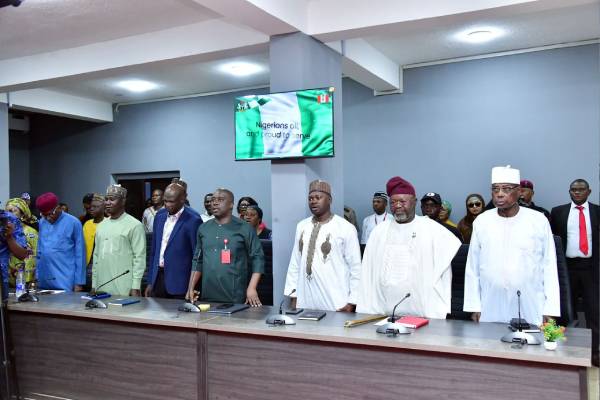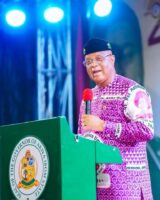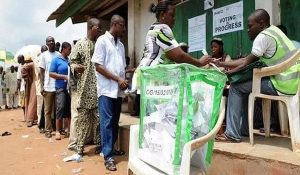As the world marks World Drug Day on 26 June 2025, the National Drug Law Enforcement Agency (NDLEA) and the United Nations Office on Drugs and Crime (UNODC) have unveiled a comprehensive week-long initiative focused on substance use prevention, with a strong appeal for public and state-level engagement.
Collective Responsibility in Drug Prevention
At a joint press conference in Abuja on 18 June, NDLEA Chairman and CEO, Brigadier General Mohamed Buba Marwa (Retd), urged citizens to “take full ownership” in protecting young Nigerians from drug abuse. He reinforced that safeguarding communities is “a collective duty” — extending beyond NDLEA’s mandate into homes, schools, workplaces and faith centres. He pledged to intensify the agency’s War Against Drug Abuse (WADA) advocacy campaigns, aligning with the 2025 World Drug Day theme: “The Evidence Is Clear: Invest in Prevention.”
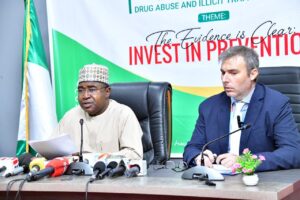
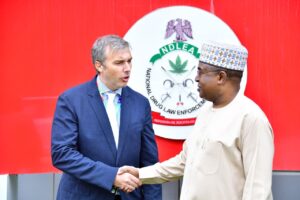
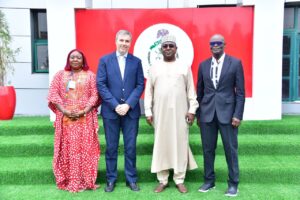
Week‑Long Programme of Activities
General Marwa outlined the activities lined up for the week, building up to the World Drug Day observance on Thursday, 26 June at the State House Conference Centre:
-
20 June (Friday): Juma’at Service at the National Mosque, Abuja.
-
21 June (Saturday): Walk Against Drug Abuse from 8 a.m., in partnership with MTN Nigeria Foundation and the University of Abuja campus in Gwagwalada.
-
22 June (Sunday): Thanksgiving Service at Mountain of Fire and Miracles Ministries, Wuye, Abuja.
-
23 June (Monday): Final round of an essay competition for schoolchildren themed “Why I Must Not Take Drugs” at NDLEA Headquarters.
-
24 June (Tuesday): Outreach targeting out-of-school youth in markets and motor parks across the FCT Area Councils.
-
26 June (Thursday): Grand finale event at the State House Conference Centre, beginning at 9 a.m.
Growing Infrastructure and Innovation
Brigadier General Marwa highlighted NDLEA’s achievements under his leadership—surging arrests, successful convictions, and increased drug seizures—as well as technological upgrades such as the deployment of body-worn cameras for agents. He also cited recent infrastructure investments, including the commissioning of barracks in Yola and facilities in Kano, with Abuja and Lagos facilities nearing completion.
UNODC Endorses Prevention‑Centric Approach
Speaking alongside Marwa, UNODC’s Deputy Head in Nigeria, Cheikh Ousman Toure, emphasised the global nature of the drug trade and its links to serious crimes such as trafficking, illegal mining, environmental degradation, and terrorism. “Stopping drug trafficking requires long-term coordinated action… state governments must be actively involved… to ensure the availability of evidence-based prevention and treatment programmes,” he stated. Toure praised NDLEA’s progress and reaffirmed UNODC’s commitment to capacity‑building in forensic services, border control, intelligence sharing, and joint investigations.
Global Resonance: UN Secretary‑General’s Message
In his annual message marking International Day Against Drug Abuse and Illicit Trafficking (World Drug Day), the UN Secretary‑General echoed the NDLEA and UNODC’s focus on prevention. He affirmed that “the evidence is clear: investing in early prevention is the most effective way to protect future generations.” He urged governments worldwide to increase resources for prevention, ensure access to treatment, and integrate recovery support into healthcare systems. He also emphasised collective responsibility: “safe, healthy and drug‑free communities cannot be achieved by enforcement alone — they require the engagement of families, schools, civil society and local authorities.”
A Call to Action
NDLEA’s public appeal, UNODC’s expert endorsement, and the Secretary‑General’s global directive converge on a single message: invest in prevention without delay. The tempo set this week—including religious, educational, community, and youth outreach—signifies Nigeria’s departure from enforcement‑only models towards a multi-layered, evidence-based strategy aimed at tackling substance abuse comprehensively.
What’s Next
As the country moves towards the culminating event on 26 June, all eyes will be on the operationalisation of the initiatives announced, especially how effectively states will roll out prevention programmes and address youth vulnerability. With NDLEA modernising enforcement and deepening stakeholder engagement, and UN agencies offering technical support, the coming months will reveal whether Nigeria can translate “the evidence is clear” into lasting public health and security outcomes.

